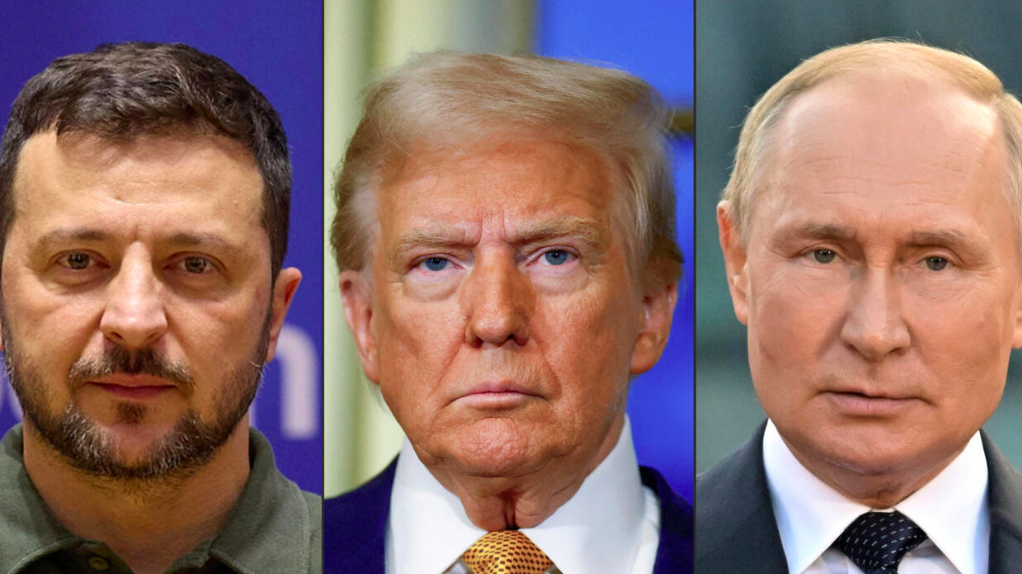Zelensky Signals Openness to Trilateral Talks with U.S. and Russia
Ukrainian President Volodymyr Zelensky’s recent overture to trilateral negotiations, alongside U.S. President Donald Trump and Russian President Vladimir Putin, signals a bold new chapter in a conflict that has strained the transatlantic alliance. At a recent White House summit, Zelensky declared, “We are ready for trilateral,” indicating Ukraine’s willingness to pursue peace through direct engagement.
This development came shortly after Trump’s separate meeting with Putin in Alaska, where the former president expressed optimism for a peace agreement. Trump now appears to be positioning both adversaries toward the negotiation table, potentially offering Ukraine a rare opportunity to influence high-stakes diplomacy firsthand.
In the same meeting, Trump pledged that the United States would “help guarantee Ukraine’s security in any deal.” While the specifics remain undefined, the implication is that a future agreement could involve U.S.-backed security assurances—a significant escalation from past rhetoric. Such a commitment might echo NATO-style deterrence, adding new weight to American engagement in Europe.
European allies have expressed caution, pressing for a ceasefire before any summit is convened. Leaders in Berlin and Paris have argued that halting hostilities is a prerequisite for meaningful negotiations. Some warn that entering talks amid active combat could reward the aggressor and weaken Ukraine’s bargaining position.
Sponsor:
Ivermectin, Hydroxychloroquine, and more! 15% Off With Promo Code “SAVE”. Plus FREE shipping in the USA. GetZStack.Com
1. All-In-One Formula for Immune System Maintenance and Support.
2. Boost your immune system with Z-Flu™, an all-natural, doctor-formulated supplement
3. All-In-One Formula for Immune System Maintenance and Support
4. Z-Calm™ — your natural ally in a high-stress world. 5. All-Natural Support for Deep, Uninterrupted Sleep
From a conservative perspective, several important principles must be upheld as these diplomatic efforts unfold.
First, Ukraine’s sovereignty must remain central. Any negotiations that bypass or sideline Kyiv would repeat past geopolitical failures and undermine legitimacy. Zelensky’s participation must be both symbolic and substantive to preserve international norms and regional stability.
Second, U.S. security guarantees must be more than symbolic gestures. Promises of support mean little without tangible commitments, such as defense aid, intelligence-sharing, and firm deterrents. Weak guarantees risk emboldening Moscow and failing the very people America claims to support.
Third, the path to peace must be strategically sequenced. Premature declarations of peace, absent enforceable terms, could embolden the Kremlin and solidify unlawful territorial gains. A phased process—ceasefire first, then verifiable guarantees, followed by formal talks—offers the most prudent approach.
Zelensky has reiterated his desire for a just peace, one that does not entail ceding key Ukrainian territories. He has made it clear that rejecting meaningful dialogue should carry diplomatic consequences, including strengthened sanctions and international isolation for Russia.
Meanwhile, the Kremlin has yet to publicly accept the trilateral meeting proposal. While Trump has opened the door, Putin’s willingness to engage under such terms remains uncertain. With Russian forces still advancing in eastern Ukraine, time is of the essence.
For Trump, brokering a trilateral summit would mark a monumental diplomatic achievement—potentially positioning him as a peacemaker on the world stage. Such a moment could have ripple effects not only for Ukraine, but also for Trump’s political aspirations.
Still, conservatives must remain clear-eyed. The U.S. must not enter entangling commitments that jeopardize its own national interests. Washington should lead, yes—but not alone. Europe must share the burden of securing its own backyard and should be expected to uphold its responsibilities in any future deal.
Zelensky’s presence at the table is not optional—it’s ethical. For too long, decisions “about Ukraine” have been made “without Ukraine.” That approach cannot stand if peace is to be sustainable, principled, and respected.
The next steps remain uncertain. Will Putin accept the invitation? Will Europe step up, or continue to defer to Washington? Can the United States, in the midst of domestic turmoil, provide the stability needed to guide the process forward?
What is clear is this: if diplomacy is to succeed, it must be rooted in justice, strength, and strategic patience—not appeasement. A trilateral summit done correctly could become a defining moment for Ukraine, for the U.S., and for the future of global order.


